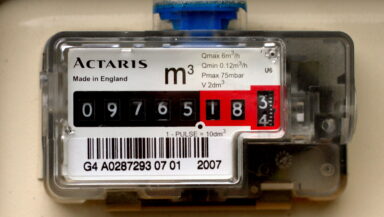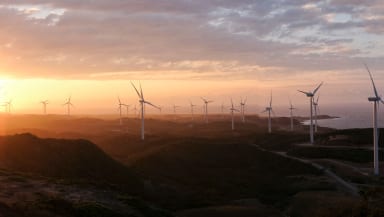The cost of living crisis gained more and more news coverage in 2022, when energy prices began soaring to record levels. But for millions of people, this is much more than a news story. It’s the devastating reality of having to choose between heating or eating – or worse.
Here’s what you need to know about the energy price cap and UK bill increases. And how we can lower energy bills and tackle climate change at the same time.
Latest on UK energy bills
- Ofgem announced the latest energy price cap will be £3280 per year. But UK energy bills are still expected to rise by 40% to £3000 for the average home from April.
- There is support available if you need help to pay your energy bills right now.
- Looking ahead, the quickest and cheapest way the government can help both lower bills and tackle climate change is to invest in energy efficiency measures as soon as possible. This means things like insulating homes and swapping gas boilers for heat pumps.
Try the Affordable Energy Calculator
What is the energy price cap?
The energy price cap sets the maximum a household will pay for each unit of energy. It’s set by the energy regulator Ofgem and reviewed every three months.
The price cap has gone up over the last few years but in the latest announcement it’s going down. However the reason bills are increasing is because government support for bills is reducing. Meaning while Ofgem’s price cap is going down, our bills are going up.
Already we’re paying double what we were this time last year, and now our bills are due to go up once again.
How many people will bill increases affect?
The price rise will hit people up and down the country when their bills go up on the 1 April. Before the price rise, almost a quarter of the country (7 million households) faced fuel poverty. The latest change is estimated to add 8.6 million households to that, as bills rise to an average of £3000 per year.
Why are energy bills so high?
Before the war in Ukraine, there was already a gas price crisis because of a rise in global gas prices. The UK is one of the most gas-dependent countries in Europe. This means sudden price spikes can easily throw us into a crisis.This is due to:
- A heavy reliance on gas boilers for heating homes and buildings
- Government failures to gear up the energy grid
- Poor government investment in renewable energy, insulation and heat pumps.
Then Russia invaded Ukraine. This tragedy has caused huge suffering and cost thousands of lives, and thrown global politics and systems into a frenzy.
This all caused gas prices to skyrocket, especially across Europe (including the UK) because a lot of gas used to flow here from Russia.
Now fossil fuel companies are raking in record-breaking profits. Their latest profit announcements were the highest we’ve ever seen – while many people are struggling with eye-wateringly high energy bills.
The government hasn’t properly taxed fossil fuel companies. That, along with their failure to invest in renewables and energy efficiency, mean we’re not protected from price shocks and the climate crisis.
How can the government help people with energy costs?
There is help available if you’re worried about paying your next energy bill. But the quickest and cheapest way the government can help people lower their bills and tackle climate change is to invest in energy efficiency measures (like insulation and heat pumps) as soon as possible.
We have the coldest and worst insulated homes in Western Europe – 19 million homes are poorly insulated. This means it’s very likely that you (and your community) have to use more energy to keep your home warm.
The government had long-standing legal targets set in 2014 to insulate as many homes as they reasonably can to an EPC C standard to prevent fuel poverty. But they’re failing spectacularly – so much so Greenpeace are threatening them with legal action. By not investing in insulation, the government is costing the country money and fuelling the climate crisis.



